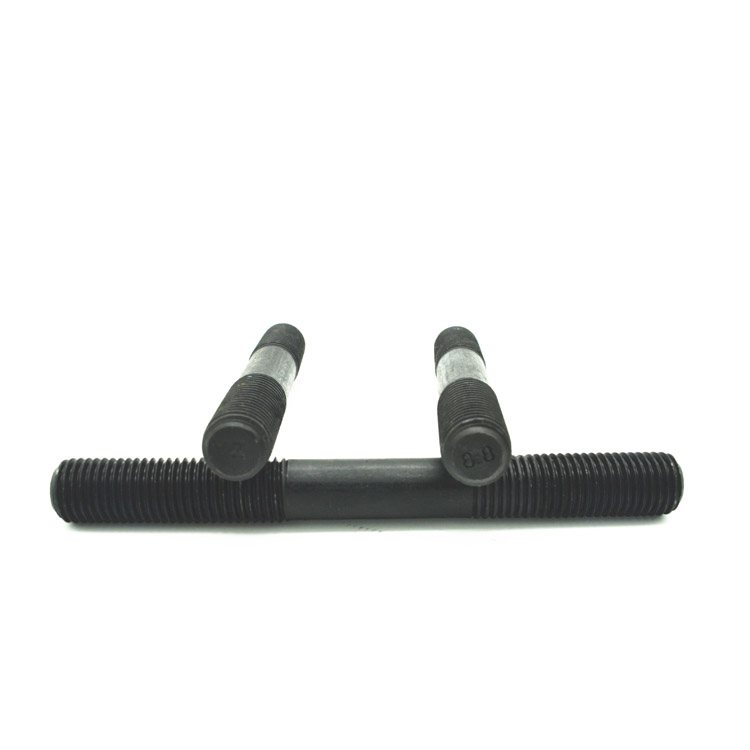Finding Reliable Bolts Suppliers for Your Manufacturing Needs and Quality Requirements
Jul . 29, 2024 22:11 Back to list
Finding Reliable Bolts Suppliers for Your Manufacturing Needs and Quality Requirements
Understanding the Importance of Bolts Suppliers in Modern Manufacturing
In the intricate world of manufacturing and construction, bolts are among the unsung heroes that hold everything together. A bolt might appear to be a mere piece of hardware, but its significance cannot be underestimated. As industries continuously strive for efficiency, quality, and reliability, the role of bolts suppliers has grown increasingly critical. This article explores the importance of bolts suppliers, the selection process, and the impact of quality control in this domain.
The Role of Bolts in Industry
Bolts serve as fasteners that connect two or more components, providing the necessary strength to withstand various stresses and loads. Found in a plethora of applications—from automotive to aerospace, and from machinery to construction—bolts must be manufactured to precise specifications to ensure performance and safety. This highlights the necessity for reliable bolts suppliers who can offer not only the right products but also the right expertise.
Selecting a Bolts Supplier
Choosing the right bolts supplier is a pivotal decision for any manufacturer. Several factors must be considered to ensure the supplier can meet a company's specific needs
1. Quality Assurance The foremost criterion should always be the quality of the bolts. Suppliers should adhere to industry standards, such as ASTM, ISO, or SAE certifications. The supplier's commitment to quality can often be assessed through their manufacturing processes, including materials used and technology implements like heat treatment for durability.
2. Variety of Products A reputable supplier should offer a comprehensive range of bolts, including those made from various materials, like steel, stainless steel, and titanium, each with unique properties suitable for different applications. Additionally, suppliers should provide different types, such as hex bolts, carriage bolts, and lag bolts, to cater to a diverse clientele.
bolts suppliers

3. Customization Options Often, industries require bolts that conform to specific dimensions or characteristics. Suppliers who offer customization options enable manufacturers to have unique solutions tailored to their needs, enhancing overall project outcomes.
4. Delivery and Logistics Timeliness is crucial in manufacturing. A supplier’s logistics capabilities can significantly impact a company's production schedule. It’s important to partner with suppliers who can guarantee prompt delivery of quality products to prevent delays and downtime.
5. Cost Efficiency While quality should not be compromised, economic factors also play a crucial role in supplier selection. An ideal supplier should provide competitive pricing structures without sacrificing the quality of their products.
The Impact of Quality Control
The importance of stringent quality control processes cannot be overstated in the relationship between manufacturers and bolts suppliers. A reliable supplier should have a robust quality management system that includes inspection at different stages of production—from raw material acquisition to final product testing. Failure to maintain high quality in bolts can lead to catastrophic failures in machinery or structural components, representing a significant risk to safety and finances.
Moreover, the ongoing partnership between manufacturers and bolts suppliers, built on transparency and trust, fosters a culture of continuous improvement. Regular feedback loops, quality assessments, and supplier audits lead to better product developments and innovations, ultimately benefiting both parties.
Conclusion
In conclusion, the selection of bolts suppliers is a critical factor that impacts the entire manufacturing process. By focusing on quality, variety, customization, logistics, and cost efficiency, manufacturers can forge strong relationships with suppliers that strengthen the foundation of their operations. As industries evolve, the need for reliable, high-quality bolts will only increase, making the role of bolts suppliers paramount in ensuring safety, efficacy, and innovation in production.
Latest news
-
Leading Metric Wood Screw Companies & Manufacturers
NewsAug.17,2025
-
Top Wire Bolts Suppliers - Quality & Durable Fasteners
NewsAug.15,2025
-
Trusted Wire Bolts Company | Quality Fasteners Supplier
NewsAug.14,2025
-
Reliable Wire Bolts Suppliers & Manufacturers for Global Needs
NewsAug.13,2025
-
High-Quality Bolts for Lawn Mower Handle Supplier
NewsAug.12,2025
-
Leading Phosphated Drywall Screws Supplier | Bulk & Custom Orders
NewsAug.11,2025
